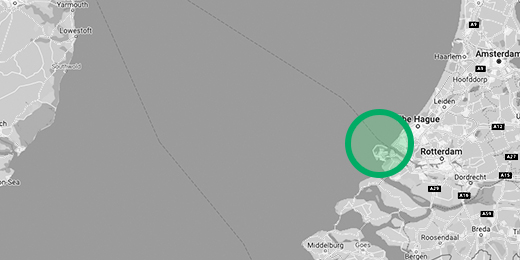The Netherlands has clear climate objectives: greenhouse gas emissions must be reduced by at least 55% in 2030, compared with 1990. In 2050, the Netherlands must be climate neutral. Industries around Rotterdam emit around 25 million tonnes of carbon dioxide per year, some 14% of the Dutch total, making the region’s contribution to the national climate objectives extremely important.
The Port of Rotterdam Authority and energy companies Gasunie and EBN joined forces to set up a carbon transport and storage project, Porthos, supported by EU funding. Porthos is currently the most advanced CCUS hub within the EU.
Porthos will act as an open-access utility for industries that have no viable decarbonization alternatives, such as refineries and the chemical sector. Four companies in the port area – Air Liquide, Air Products, ExxonMobil and Shell – will capture 2.5 million tonnes per year of carbon dioxide. These companies successfully competed for financial support through a government auction, SDE++, designed to support the most cost-efficient industrial carbon dioxide reductions and bridge the difference in costs between the ETS carbon price and carbon capture and storage.
In 2023, Porthos aims to build the infrastructure that will pipe carbon dioxide from these companies out to the North Sea. Initial storage sites, depleted gas fields designated P18, are 20 km offshore and more than 3 km beneath the seabed. The gasfields have a capacity of 37 million tonnes.
Storage capacity is currently sold out. Porthos is investigating the possibilities for a sequel.


